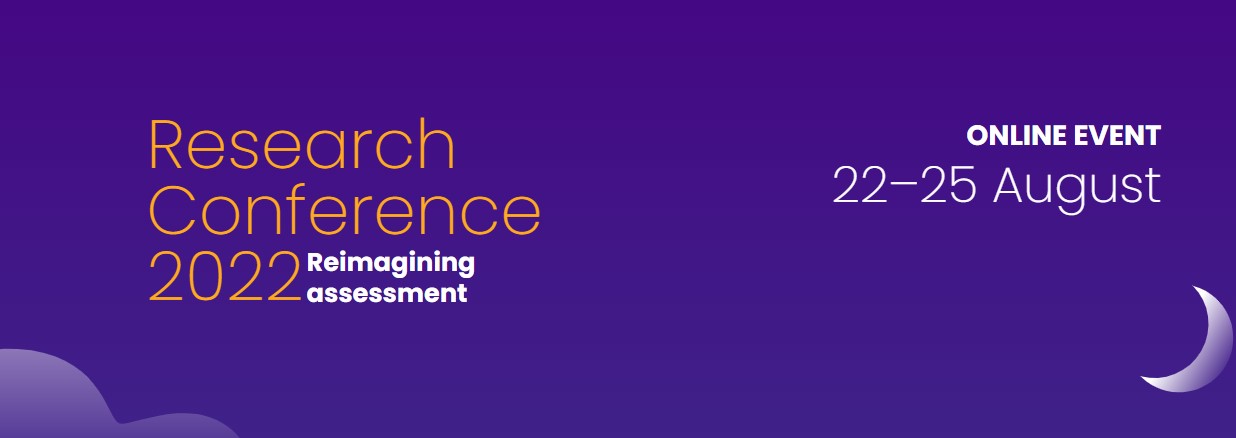Assessments for global goals
Start Date
22-8-2022 7:00 PM
End Date
22-8-2022 8:00 PM
Abstract
Assessing where students are at in their learning is critical in determining the progress of countries towards achieving the United Nation’s Sustainable Development Goal 4 (SDG4): ‘ensure inclusive and equitable quality education … for all’ by 2030. ACER’s contribution to Education 2030 is spearheaded by the Global Education Monitoring (GEM) Centre, a long-term partnership with the Australian Government’s Department of Foreign Affairs and Trade (DFAT). The GEM Centre develops robust methods for using regional or national learning assessments to report against global proficiency standards in reading and mathematics. Education stakeholders continue to be concerned about the effect of the COVID-19 pandemic on learning outcomes and progress towards SDG 4. ACER, with support from the GEM Centre, developed the Assessments for Minimum Proficiency Levels (AMPL) as part of the UNESCO Institute for Statistics study ‘COVID-19: Monitoring Impacts on Learning Outcomes’ (MILO)’. The AMPLs are groundbreaking tools that can be administered, independently or alongside national or regional assessments, to measure the proportion of learners at the end of primary school who have achieved at least a minimum proficiency level in reading and mathematics (SDG indicator 4.1.1b). For the MILO study, the AMPLs were used to monitor the effects of COVID-19 in six African countries. This presentation provides an overview of how the GEM Centre supports countries to achieve global goals and uses the MILO study as an example, with a focus on the investigation of the educational responses to COVID-19 and the resulting recommendations to build more resilient education systems.
Recommended Citation
Schwantner, U., Robertson, S., Ramalingam, D., & Friedman, T. (2022, August 22–25). Assessments for global goals [Conference session]. Research Conference 2022: Reimagining assessment. Australian Council for Educational Research. https://research.acer.edu.au/rc21-30/rc2022/rc2022/5/
Geographic Subject
Africa
Assessments for global goals
Assessing where students are at in their learning is critical in determining the progress of countries towards achieving the United Nation’s Sustainable Development Goal 4 (SDG4): ‘ensure inclusive and equitable quality education … for all’ by 2030. ACER’s contribution to Education 2030 is spearheaded by the Global Education Monitoring (GEM) Centre, a long-term partnership with the Australian Government’s Department of Foreign Affairs and Trade (DFAT). The GEM Centre develops robust methods for using regional or national learning assessments to report against global proficiency standards in reading and mathematics. Education stakeholders continue to be concerned about the effect of the COVID-19 pandemic on learning outcomes and progress towards SDG 4. ACER, with support from the GEM Centre, developed the Assessments for Minimum Proficiency Levels (AMPL) as part of the UNESCO Institute for Statistics study ‘COVID-19: Monitoring Impacts on Learning Outcomes’ (MILO)’. The AMPLs are groundbreaking tools that can be administered, independently or alongside national or regional assessments, to measure the proportion of learners at the end of primary school who have achieved at least a minimum proficiency level in reading and mathematics (SDG indicator 4.1.1b). For the MILO study, the AMPLs were used to monitor the effects of COVID-19 in six African countries. This presentation provides an overview of how the GEM Centre supports countries to achieve global goals and uses the MILO study as an example, with a focus on the investigation of the educational responses to COVID-19 and the resulting recommendations to build more resilient education systems.


